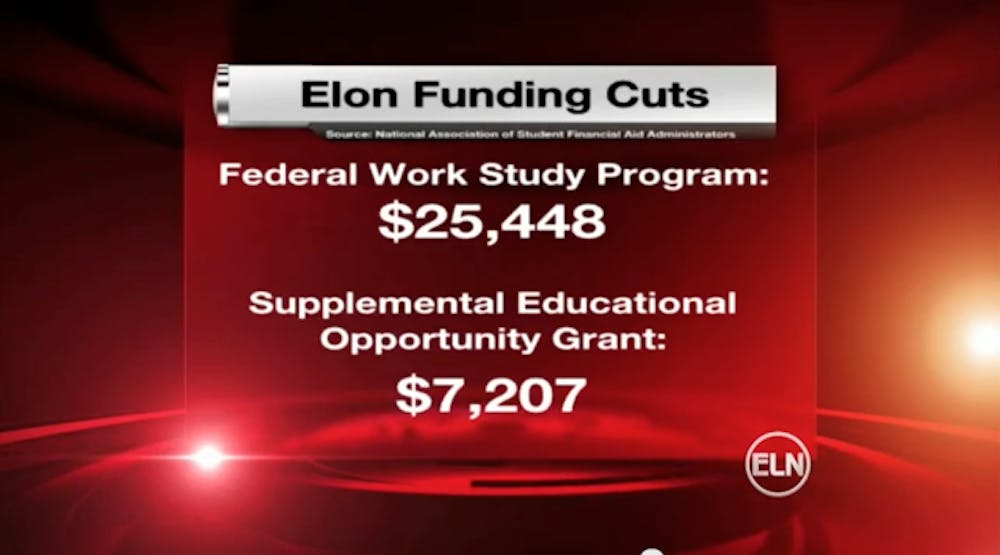Sequester is a term we hear often, but what is it? It's the federal process, by which Congress has agreed to cut spending, according to USA TODAY Collegiate Correspondent Jacob Hawkins, by $85 billion dollars in order to try to reduce the deficit.
It roots back to the recession. Congress was supposed to develop a way to reduce the debt by March 1, but back in 2011 they said if they couldn't find a way, there would be automatic spending cuts across the board. These cuts affect everyone and for some Elon students, the cuts are even more significant.
Elon sophomore Pari Shah started working on campus her very first week of college.
"I don't really know going to school without having a job," Shah said.
Shah's parents are unable to help with tuition, so she is responsible for all of her expenses. She has scholarships and financial aid grants, but that doesn't cover everything.
"It's stressful, to know that if I can't pay for it, then no one else can," Shah said.
Shah says she works almost everyday and more than two thousand dollars of her pay comes from the federal work-study program.
[div class="alignright"] [/div]
With the sequester cuts set to take place, Shah and students who receive aid from the program could lose some of that government aid next school year.
According to the National Association of Student Financial Aid Administrators, the sequester will drain the federal work-study program by $37.6 million. The funds for the Supplemental Educational Opportunity Grant will be cut by $33.6 million.
For Elon specifically, the cuts total almost $33 thousand dollars with the federal work-study being cut by $25,448 and the Supplemental Educational Opportunity Grant cut by $7,207.
"That could affect literally dozens of Elon students directly, you know, a few thousand dollars at a time so that can be a pretty significant thing. You know how expensive Elon is," Economics Professor Steve DeLoach said.
"So if I couldn't cover that last half of it, I wouldn't be at this school, regardless of scholarships regardless of how much I work, but if I couldn't cover that last two thousand, so I feel really bad for those that it does affect because it seems so small but it's a matter of them being here or not," Shah said.
According to DeLoach the sequester might also affect those graduating. He estimates that around seven hundred thousand jobs will be cut from the job market.
"So if you're a senior looking for a job, this could make it harder for you," DeLoach said.


